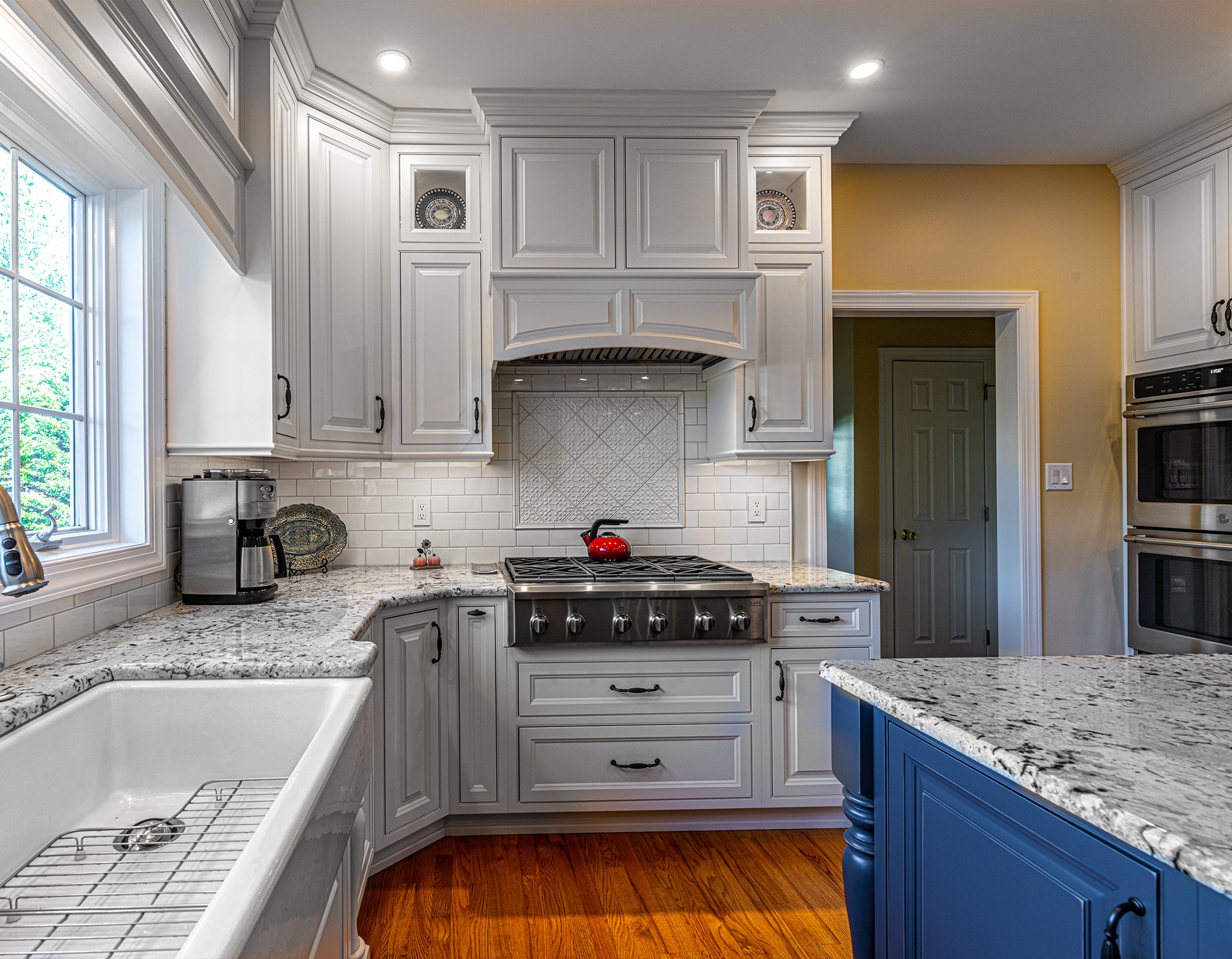Mar 01, 2022
Practical & Stylish
Dilworth’s Custom Design discusses range hoods and their role in the kitchen.
Kitchen range hoods are often an afterthought but they play a vital role in keeping your home free from the odors and smoke of cooking and ensuring a healthy environment.
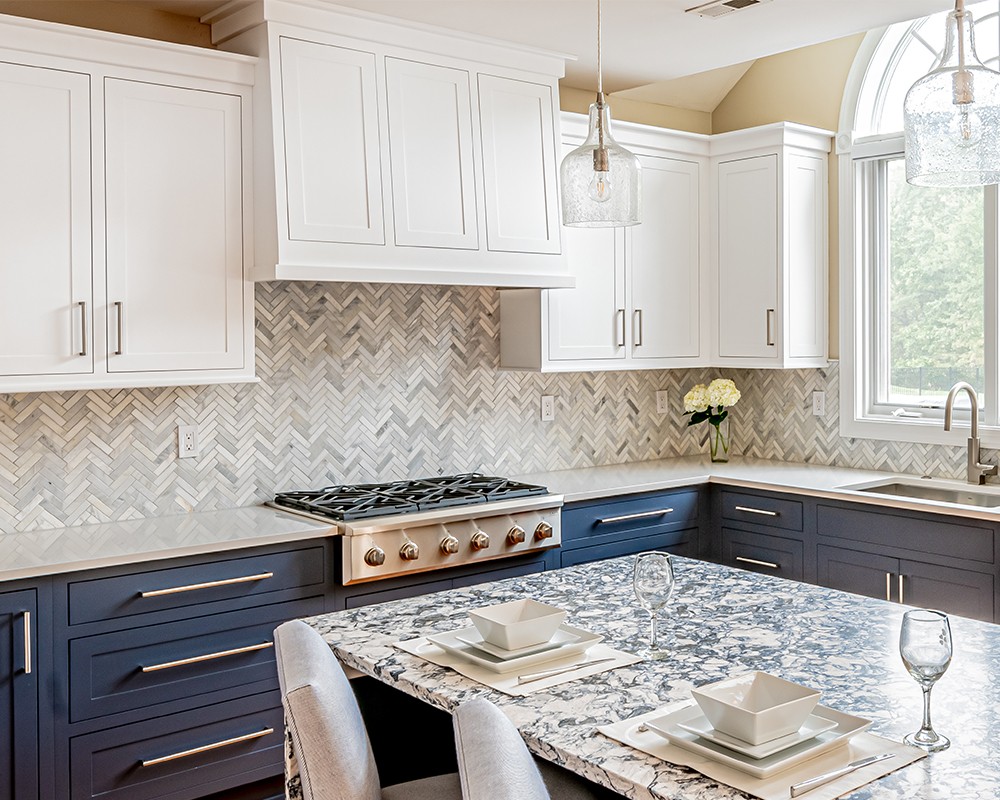
By working with an experienced kitchen design professional, you will be guided to making the best possible choice of style for your space.
The over range mounted microwave is no longer the only option for kitchen ventilation. Today, range hoods are not only practical but stylish as well. With a number of options, it’s easy to find a range hood that will meet your cooking needs and enhance the beauty of your kitchen.
Practical considerations in choosing a range hood include:
Vented or duct-free. The best option is vented so the smoke and odors are vented outdoors rather than being re-circulated back into the home. However, this makes the installation more complicated and, in some kitchens, it’s just not practical due to the location of the range. If you must go with a ductless hood, think about a carbon filter to reduce odors.
CFM (cubic feet per minute) is another consideration. More airflow does mean faster venting. However, it’s no guarantee of better smoke and odor removal. Be aware that vented range hoods above a certain CFM rating often are required by the township to have a make-up air unit. When you exhaust air from a home, it needs to be replaced. Without a make-up unit, air can be pulled down chimneys or backwards through water heater flues.
Lighting. Most are equipped with lights to help illuminate your cooking area. Lights mounted near the front of the hood illuminate the work area better.
Number of fan speeds. Most offer from three to six speeds. A minimum of two is suggested. The high speed is generally used when cooking while the low speed can be used to continue to ventilate after the burners are turned off.
Noise may also be something you want to consider. Many fans are noisy particularly when running at high speed. Most manufacturers will list the sones rating at each fan speed so you can compare.
Size is important and is determined by the size of your range. Basic residential ranges generally only require a range hood of the same size while professional-grade appliances will recommend a slightly larger range hood.
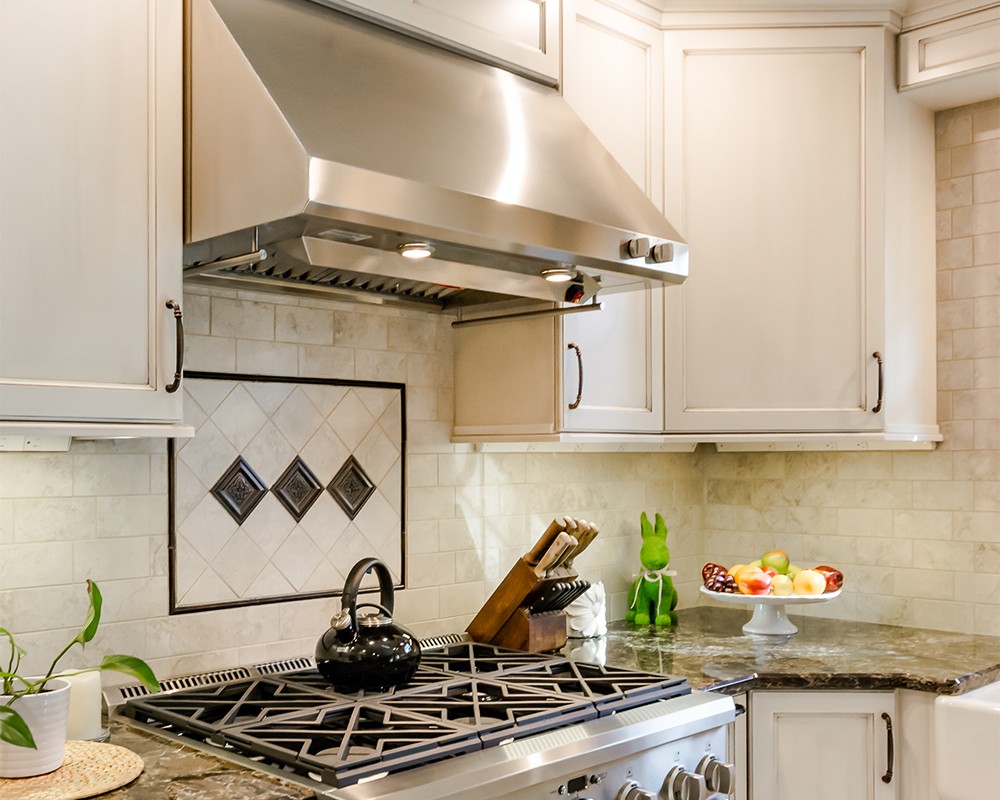
Undercabinet hoods mount to the bottom of a wall cabinet and are typically stainless steel.
Style Considerations
Of course, style is the first consideration given when replacing a range hood as part of a kitchen remodel. Here too, there are many more options these days.
Undercabinet hoods are just as the name implies. These are mounted to the bottom of a wall cabinet and can be stainless steel or they can be an insert that is mounted right into and concealed by the cabinetry. This gives a clean and cohesive look to the kitchen—you don’t even know there’s an appliance hiding there.
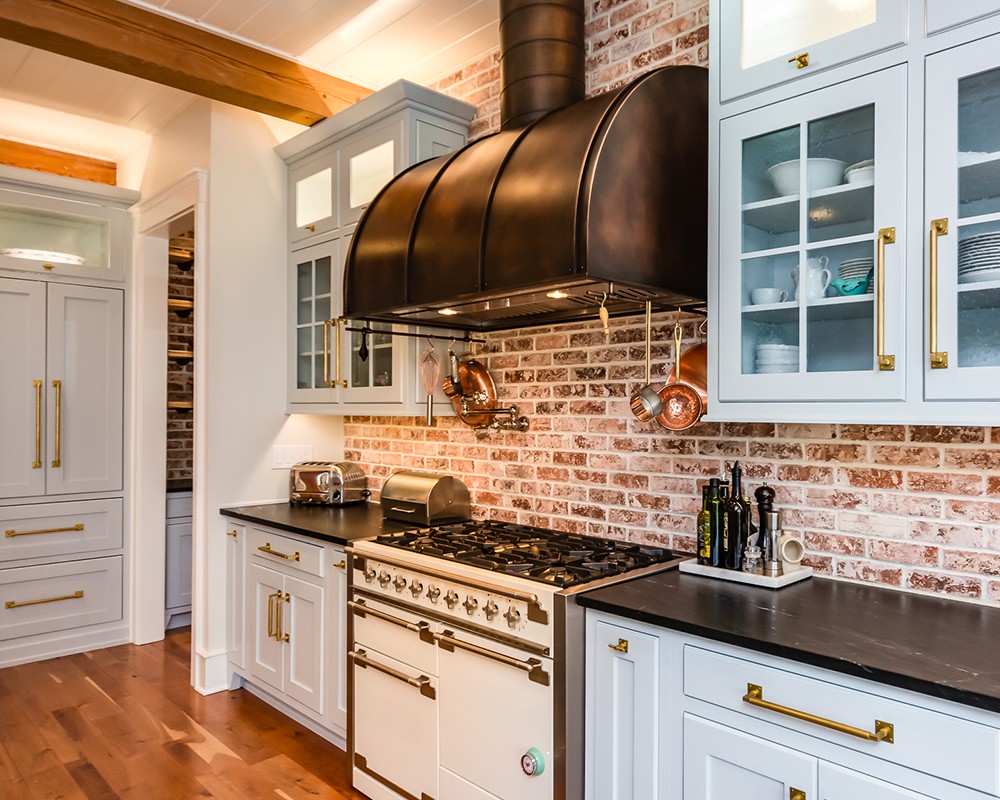
Wall chimney hoods mount with exposed stacks on the wall.
Wall chimney hoods have no cabinetry above them. They mount with exposed stacks on the wall. These are generally the most challenging to install since there is no flexibility with the ductwork. They are usually stainless steel but you can find painted finishes or even a glass canopy.
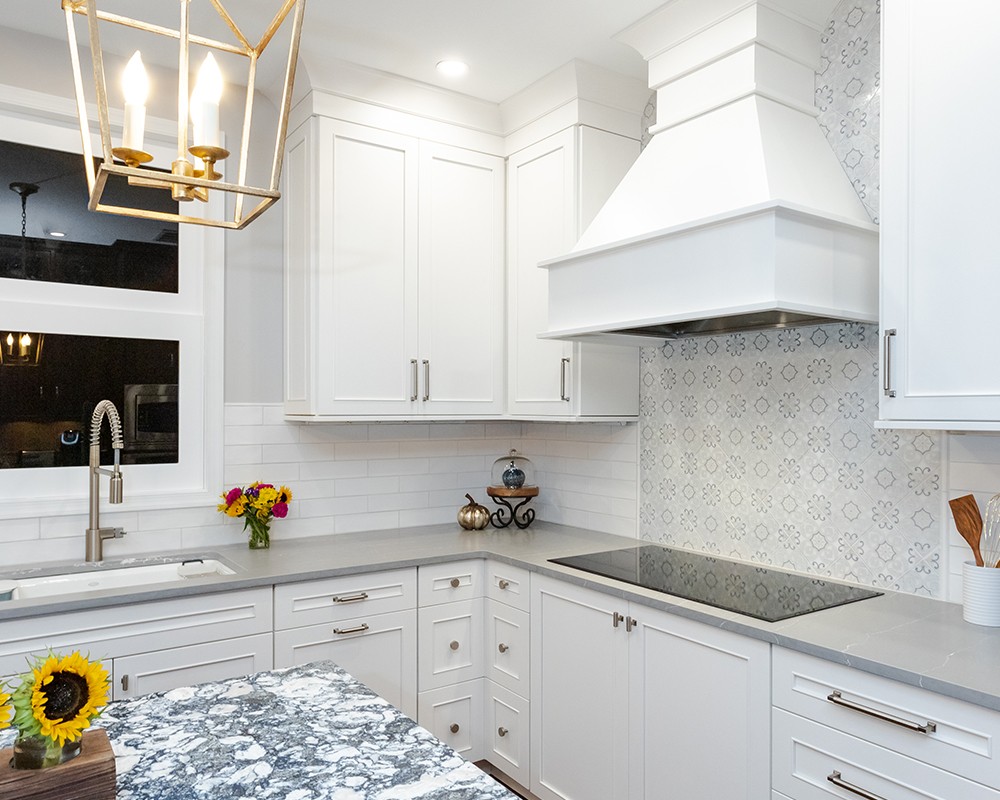
Range hoods can also be mounted right into and concealed by custom cabinetry.
By working with an experienced kitchen design professional, you will be guided to making the best possible choice of style for your space. Follow up with installation by a skilled and professional team of installers and you will have a range hood that is functional and beautiful. It might even be the focal point of your entire kitchen!
Explore our GALLERY for endless inspiration on your next kitchen renovation project.
Article originally published in Montco/Main Line East House & Home, Vol. 20, Issue 1

